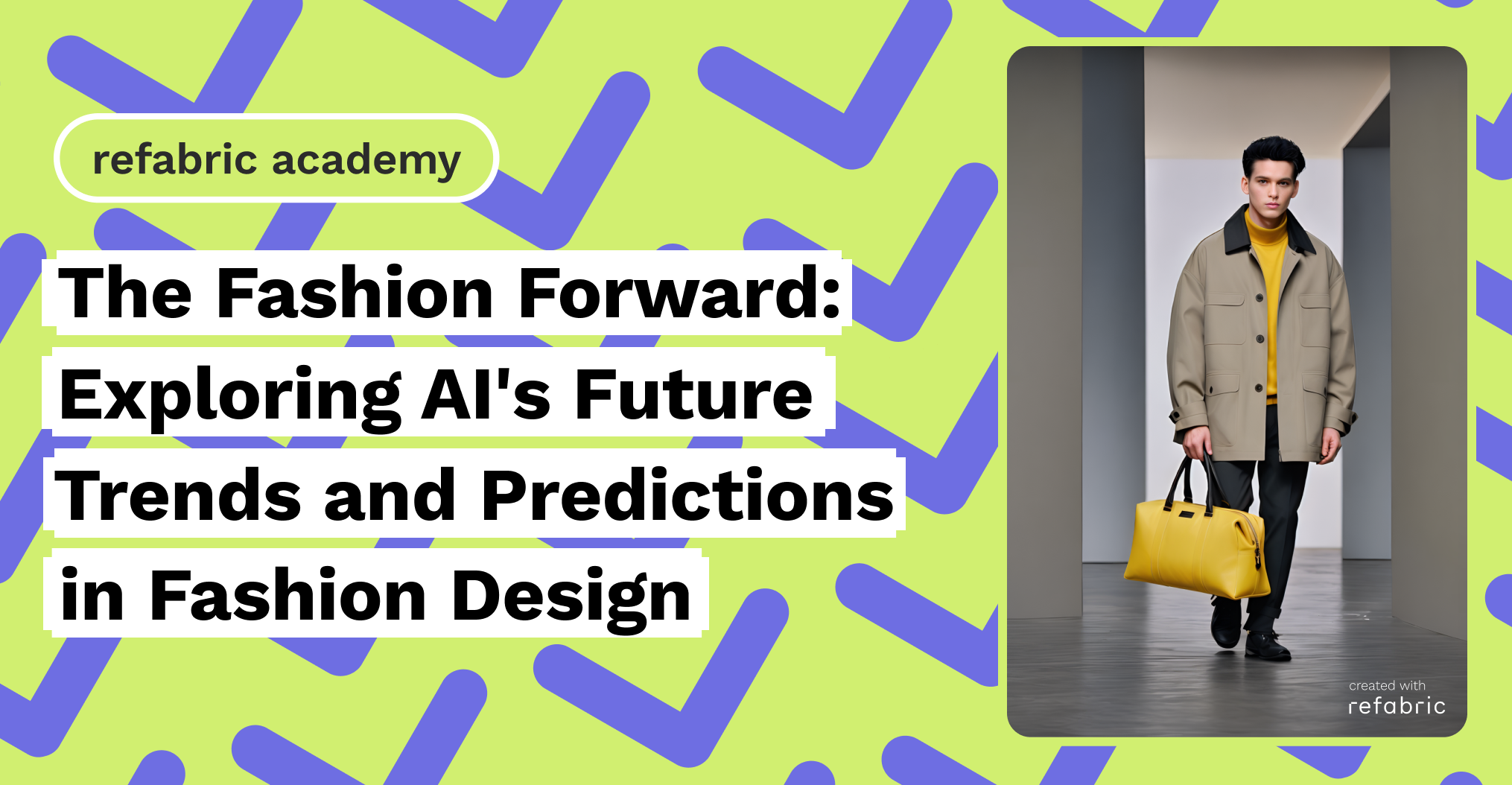In the dynamic world of fashion, staying ahead of the curve is essential. As we stand at the intersection of artificial intelligence (AI) and fashion design, the landscape is ripe with innovation and transformative potential. From personalized shopping experiences to sustainable manufacturing processes, AI is reshaping every aspect of the industry. In this blog post, we’ll delve into the future trends and predictions for how AI will continue to shape the fashion industry in the years to come.

Hyper-Personalization
The era of one-size-fits-all fashion is behind us. AI algorithms are paving the way for hyper-personalized shopping experiences, where recommendations are tailored to individual tastes, preferences, and even body shapes. In the future, we can expect AI to delve deeper into understanding consumer behavior, leading to highly curated and personalized fashion offerings.
Virtual Try-Ons and Digital Fashion
With the rise of virtual reality (VR) and augmented reality (AR), virtual try-on experiences are becoming increasingly sophisticated. AI-powered avatars and digital models allow consumers to virtually try on clothes, experiment with different styles, and visualize how garments will look and fit before making a purchase. As these technologies continue to evolve, we can anticipate a shift towards digital-first fashion experiences, blurring the lines between physical and virtual realms.
Sustainability Solutions
Sustainability is no longer a buzzword but a necessity in the fashion industry. AI is playing a crucial role in driving sustainability initiatives, from optimizing supply chain practices and reducing waste to enabling more eco-friendly manufacturing processes. In the future, AI algorithms will also become more adept at analyzing environmental data and making real-time decisions to minimize the industry’s ecological footprint.
AI-Designed Collections
As AI algorithms become more sophisticated, we can expect to see an increase in AI-designed fashion collections. By analyzing vast amounts of data, including trends, historical designs, and consumer feedback, AI can generate innovative and trend-setting designs that push the boundaries of creativity. Designers will collaborate with AI as a tool to augment their creativity, leading to unique and groundbreaking collections.
Ethical Considerations and Transparency
With great power comes great responsibility. As AI continues to wield influence in fashion design, ethical considerations and transparency will become increasingly important. Addressing issues such as algorithmic bias, data privacy, and labor practices will be essential for building trust with consumers and maintaining the integrity of the industry.
Augmented Design and Collaboration
AI is not replacing designers but augmenting their capabilities. In the future, we can expect to see more collaborations between human designers and AI systems, leveraging the strengths of both to create innovative designs. Augmented design tools will empower designers to explore new creative avenues and push the boundaries of traditional fashion design.
Rise of AI-Powered Retail Experiences
The future of retail is intelligent and immersive. AI-powered retail experiences, including smart mirrors, virtual stylists, and personalized recommendations, will redefine the way consumers interact with fashion brands. By leveraging AI to understand consumer preferences and behaviors, retailers can create seamless and engaging shopping experiences across online and offline channels.
Looking ahead, the future of AI in fashion design is bright and full of possibilities. From hyper-personalization and virtual fashion experiences to sustainable solutions and AI-designed collections, the potential for innovation is limitless. By embracing AI as a tool for creativity and collaboration, the fashion industry can unlock new levels of efficiency, sustainability, and customer satisfaction. As we embark on this exciting journey, one thing is certain: the fashion landscape of tomorrow will be shaped by the transformative power of AI.
